Our Latest News- June 18, 2025
Svoronata Field Station
As our first group of volunteers wraps up their time here and we welcome our next arrivals, we want to recognize the highlights of our last two weeks. Our previous bird surveys caught the scarcely spotted White Stork and Great Cormorant birds. The volunteers were also able to identify the Blue Rock Thrush, which had never before been observed at our Koutavas Lagoon location. Over the last two weeks, the volunteers were able to cover 10.1km of seafloor to collect data on our vital local seagrass, the Posidonia oceanica.
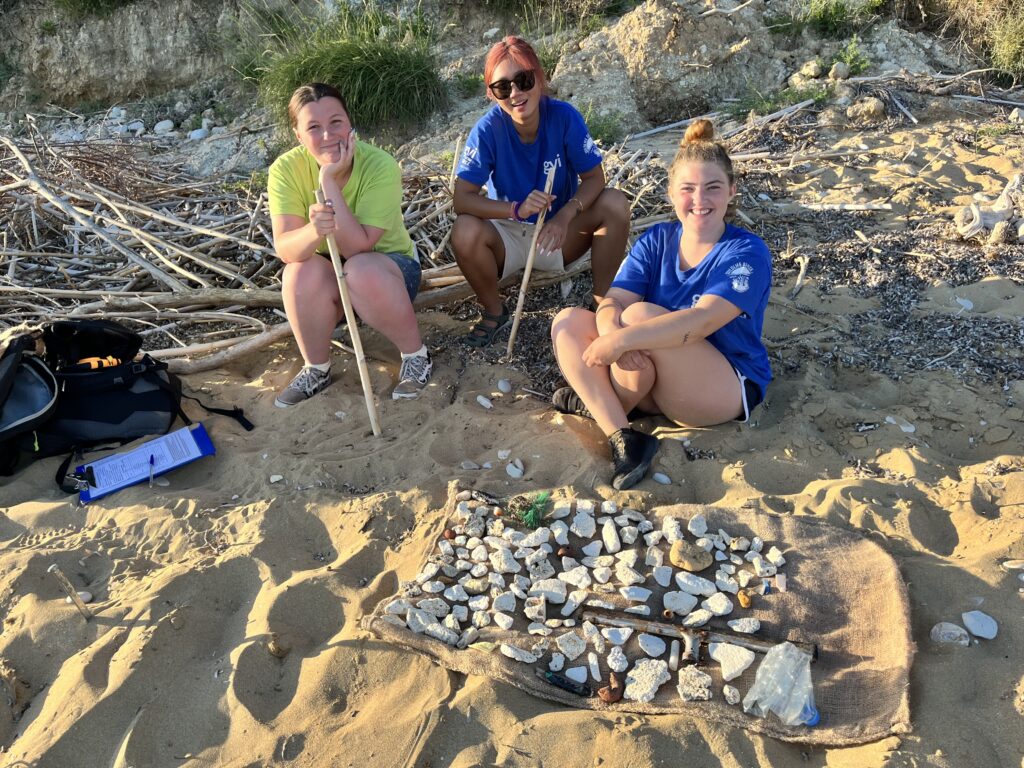
During the snorkel surveys, we observed several species that rely on the seagrass ecosystem, including sting rays, eels, and lots of different types of fish. We were able to identify new species of plants during sand dune surveys, which is vital for keeping the sand compact by using their roots to help prevent flooding. In association with NOAA, we have worked to collect data on the trash that pollutes our beaches. During our data collection, we collected an abundance of trash, with plastic foam being the majority of the trash found. These surveys are important because we can identify the types of trash that are most prevalent and which beaches hold more trash, while also improving our beaches for the local wildlife. This week has observed several new firsts of the season, and we are ready and excited for even more!
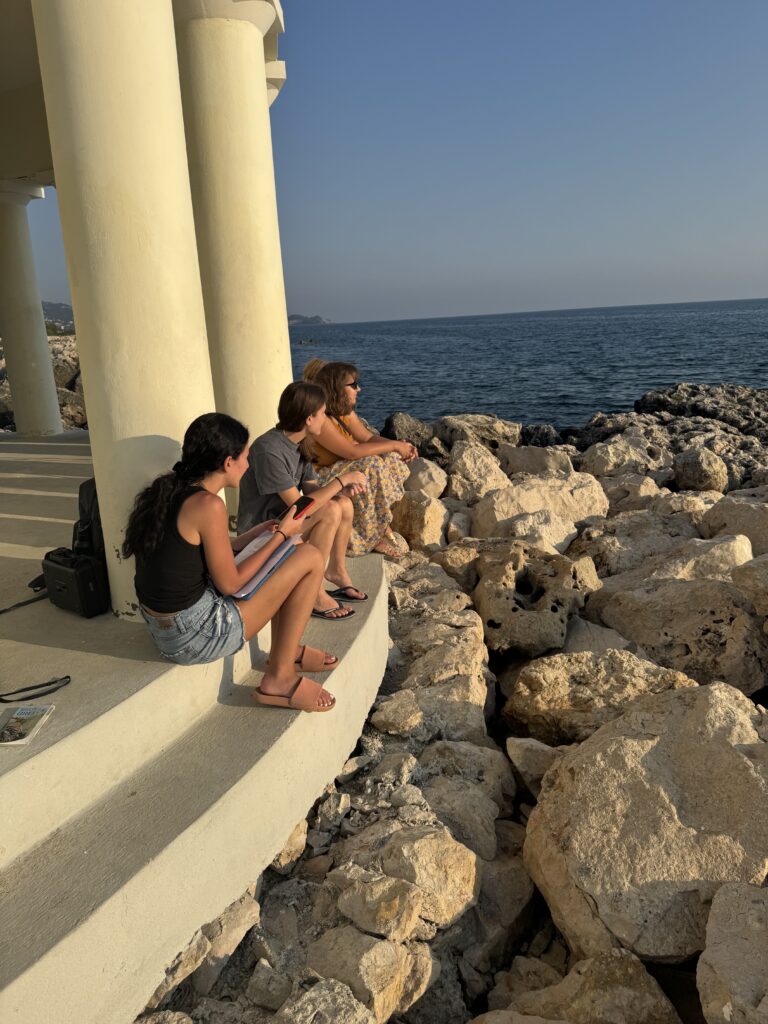
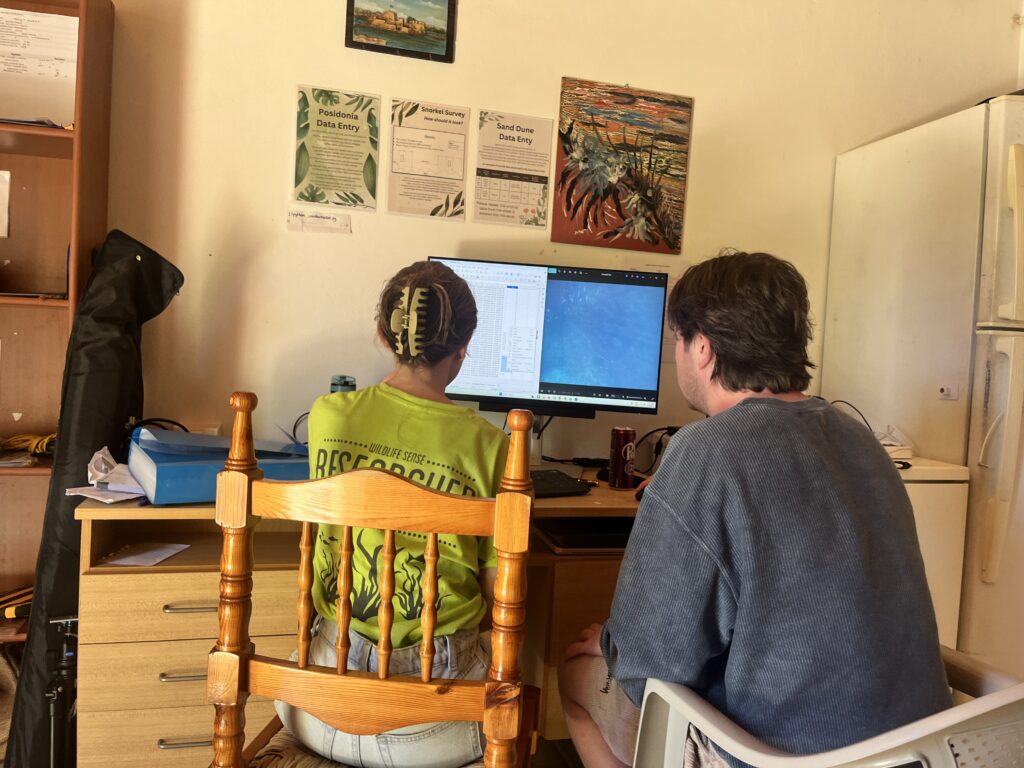
Lixouri Field Station
The Lixouri field station has been experiencing lots of new emergences over the past two weeks. Many new nests have been found across all survey areas, with the total nest count now reaching 27. Volunteers have observed temperature loggers being placed in some of the Megas Lakkos nests. This is in collaboration with the University of Thessaloniki, allowing for the collection of vital data concerning the egg chamber, and, therefore incubation temperatures.
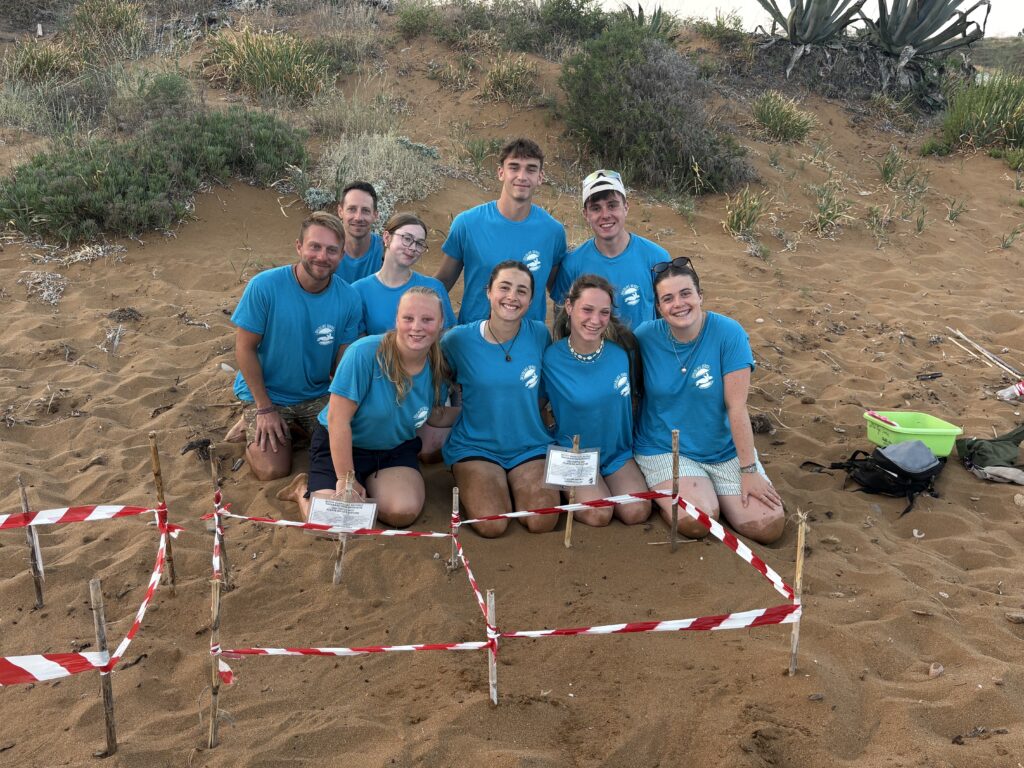
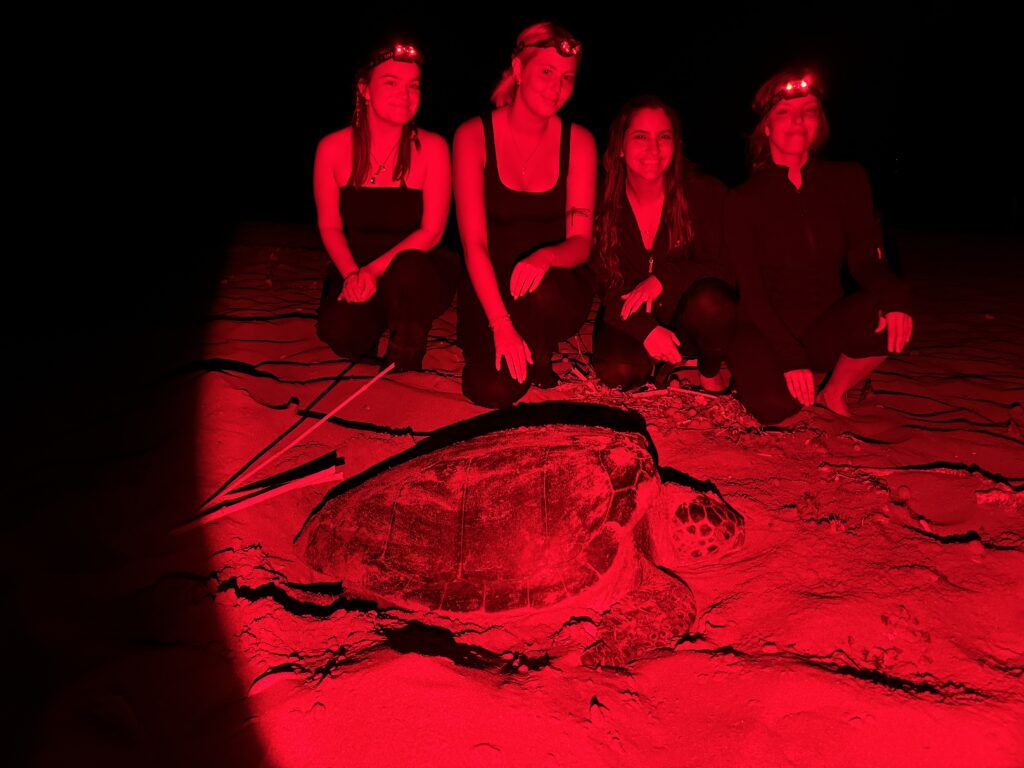
On the first morning survey for the new group of volunteers, the group surveying Vatsa encountered a turtle returning to the sea after laying what they would go on to discover to be the fourth nest on Vatsa beach. The night survey team also encountered Danielle returning to Megas Lakkos. Danielle is Wildlife Sense’s most prolific known turtle, who was first tagged in 2015, and she is expected to return in two weeks to nest again!
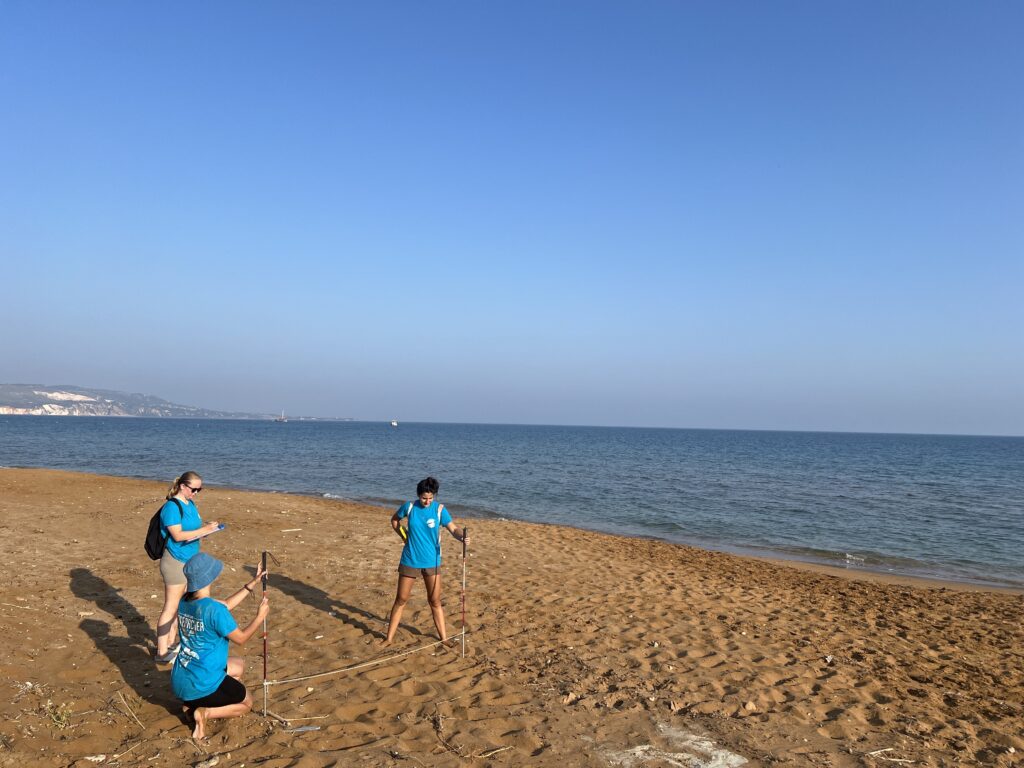
The volunteers have also learned how to profile beaches, collecting data from some of Lixouri’s many nesting beaches. From this, we can monitor the effect of coastal erosion throughout the season and over the years. This is vital information, and it helps us observe the suitability of beaches for nests. They have thoroughly enjoyed these evening shifts!
Argostoli Field Station
As we approach the middle of June, our nest number is rapidly rising – as is the temperature here in Kefalonia! We have located over fifteen new nests across all our survey areas at our Argostoli field station. Eleven of them have had to be relocated to a safer placement on the beaches to have the best chance of reaching full development. Wildlife Sense has also recently recorded our highest clutch count in Kefalonia with 183 eggs from a single Loggerhead nest.
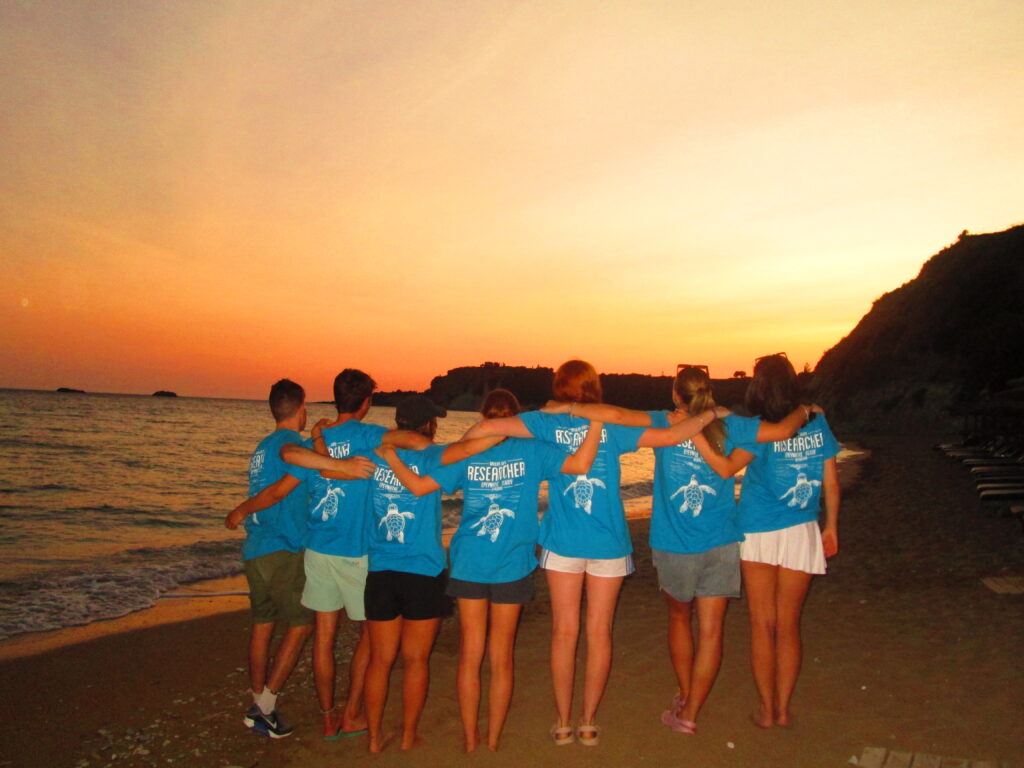
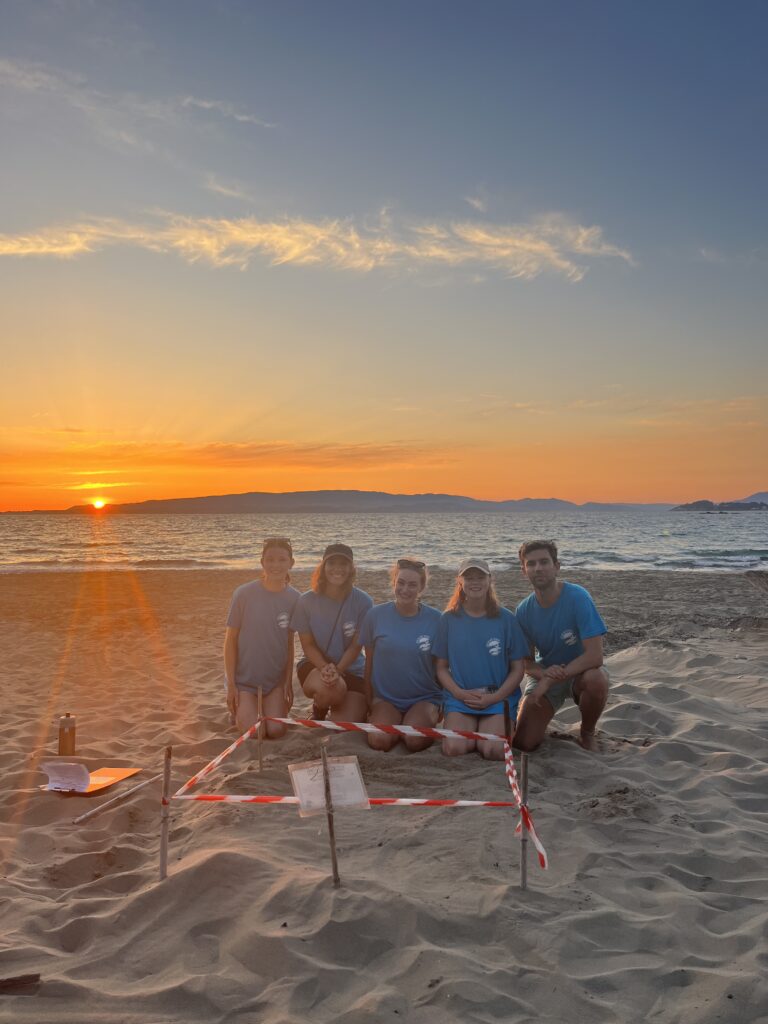
Unfortunately, this week we had to rescue a Loggerhead Sea Turtle down in the Argostoli harbour. It was spotted by our volunteers with a fishing lure attached to its front right flipper. Our team reacted quickly and all eyes went into finding this Turtle. We were able to capture the turtle and remove the lure. She was then released back into the harbour after a brief health check was given.
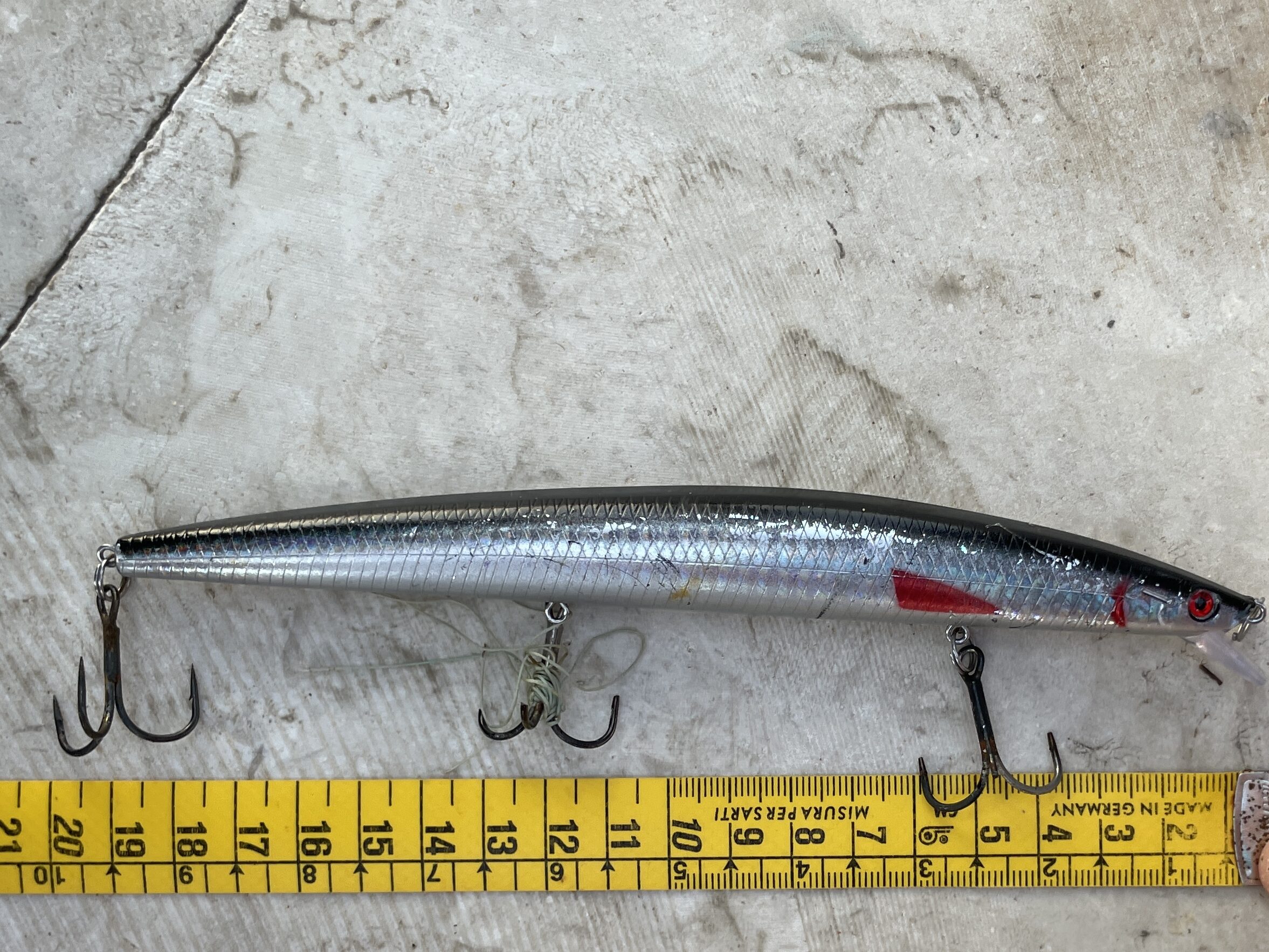
This week we have started a new shift here at Wildlife Sense where we have been spreading awareness about Sea Turtles to anyone that is interested. This past week we have been located at Avithos beach and the upcoming weeks we will be at Megali Ammos. Feel free to come and join us and discover how you can help protect these fascinating creatures and their habitat!
Education Program
On the Education Programme we’re really excited to be back for another season of sharing the wildlife of this incredible island with people from all over the world. This year we’re thrilled to be expanding the areas we survey for Posidonia oceanica seagrass.
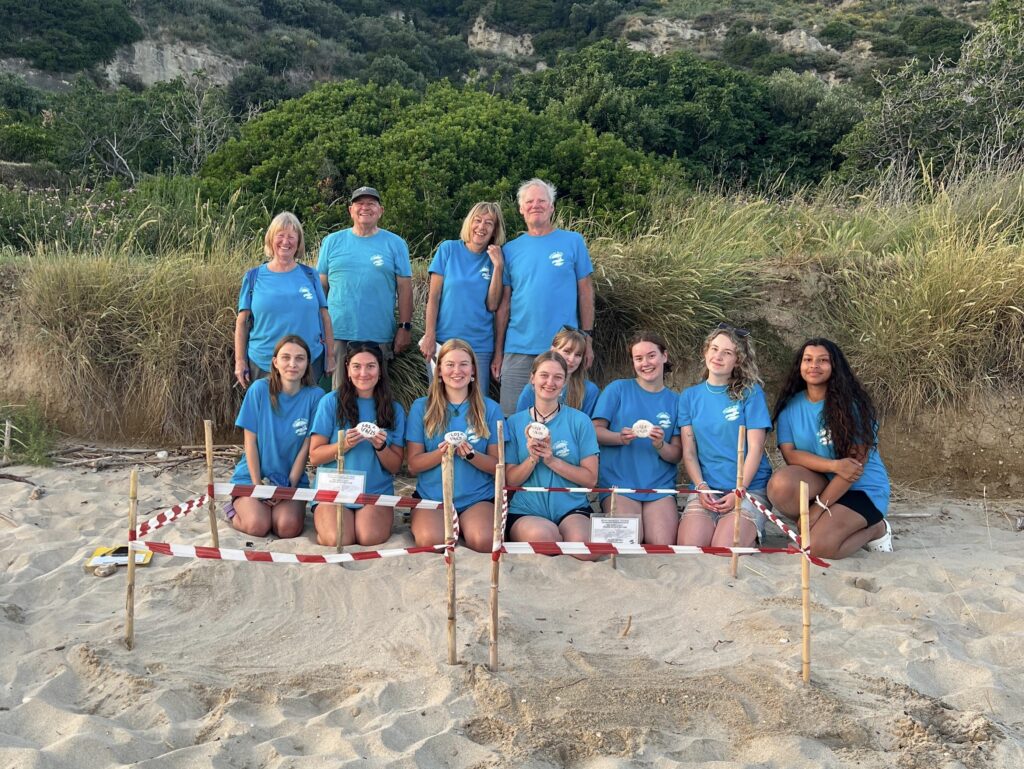
For the Education Programme, our first group of 2025 was an all-girls school from London. With some of them having never snorkeled, the week was an incredible experience as they spotted all sorts of sea life – including rainbow wrasse, seabream, sea stars, and dolphins!
We also had a group of volunteers that had come all the way from America and Germany! Their first morning survey brought the excitement of an abandoned turtle egg chamber on Kanali Beach and many tracks across the beaches in the Lourdas area.
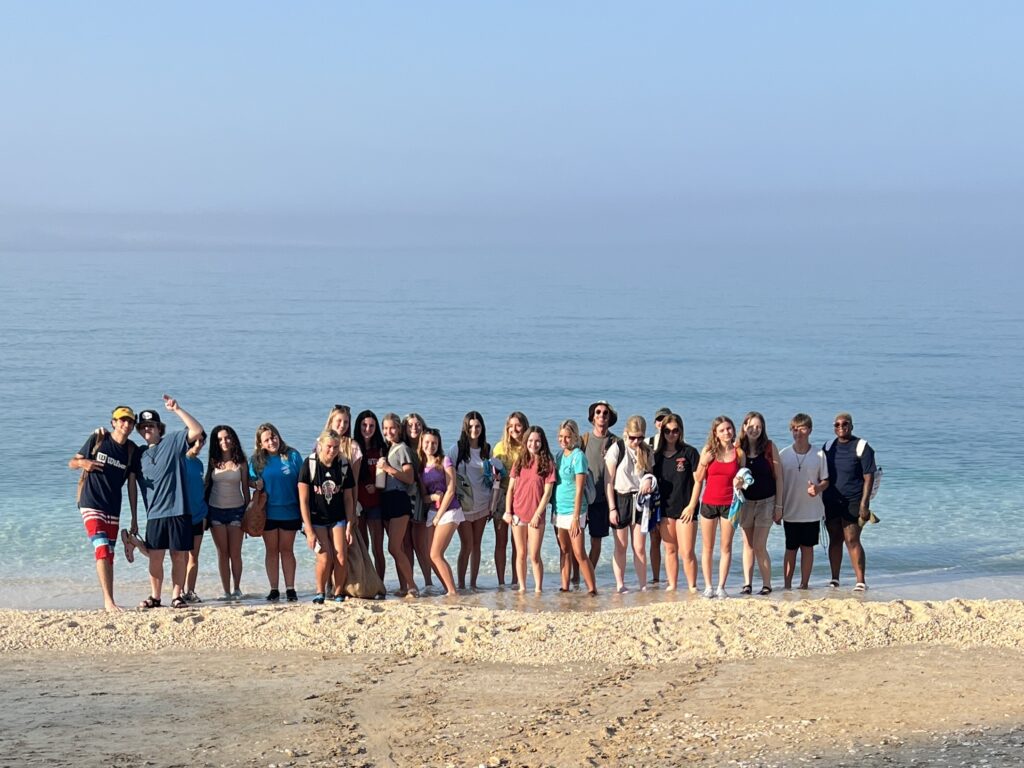
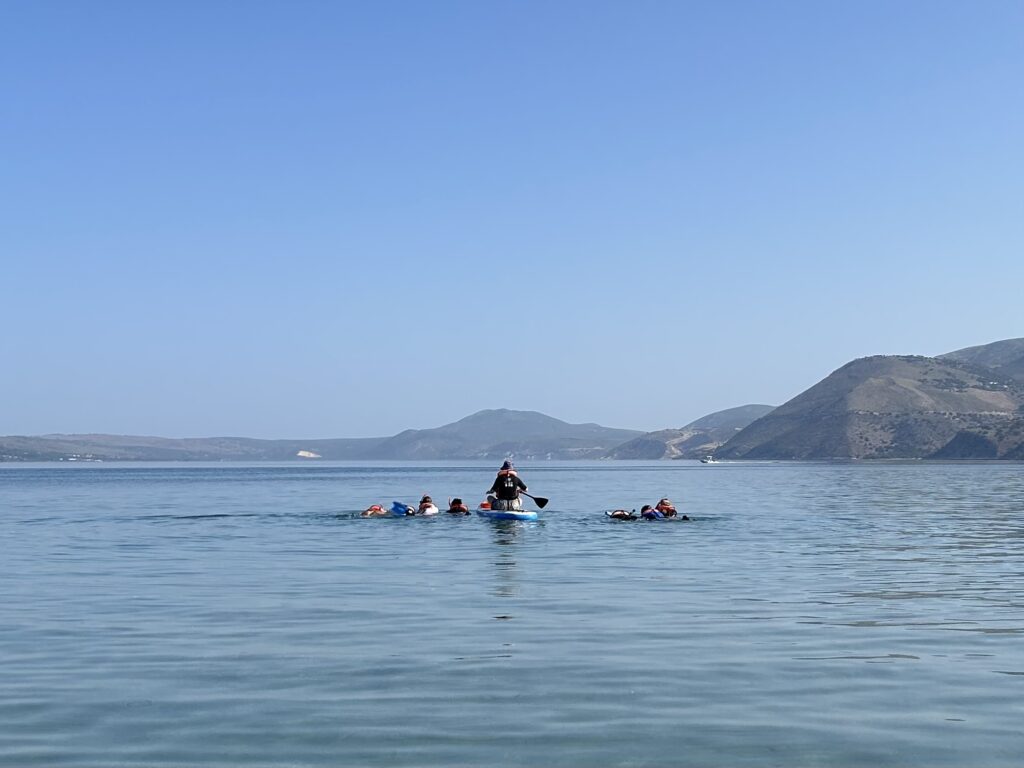
Despite being only a couple of weeks into our season of the Education Programme, we already have 5 nests; 4 of which have been safely relocated from Lourdas to Kanali. These relocations take place to ensure the hatchlings have a better chance of survival, due to the risk of inundation and light pollution on Lourdas. The support from our educational volunteers enables these relocations to be smooth and efficient.
Skala Field Station
Here in the Skala Field Station, we have now said goodbye to the first group of the season and welcomed the second. They had an amazing two weeks of data collection, mapping 13.6km of the sea floor with an average of 12.4% Posidonia coverage. All this hard work wasn’t without reward, as all of our volunteers were lucky enough to spot a turtle during their snorkel surveys, ticking off 26 of our 30 snorkel bingo species.
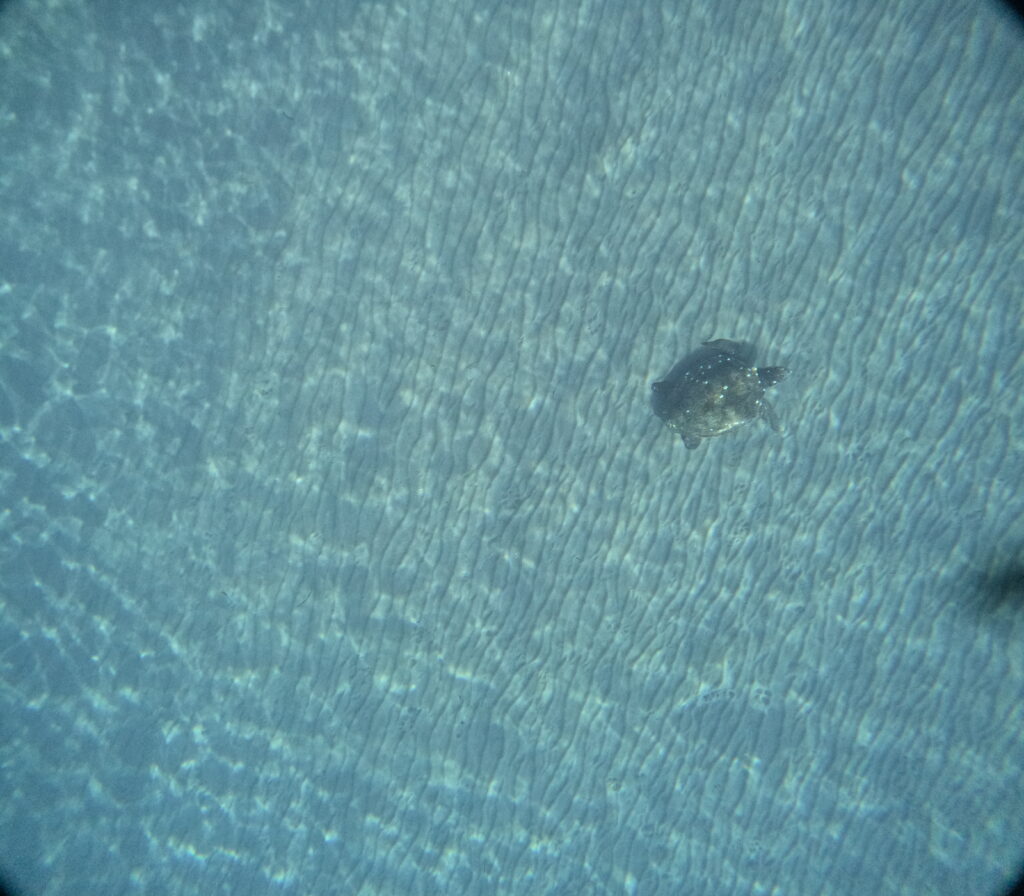
They got stuck into the sand dunes surveys, discovering lots of new plants that have yet to be identified, but with their help, we have already been able to add two new plants to our plant list. Their efforts have set us up for a great season ahead. Our new arrivals have already matched their efforts; their first day of shifts was a success, with lots of great data collected.
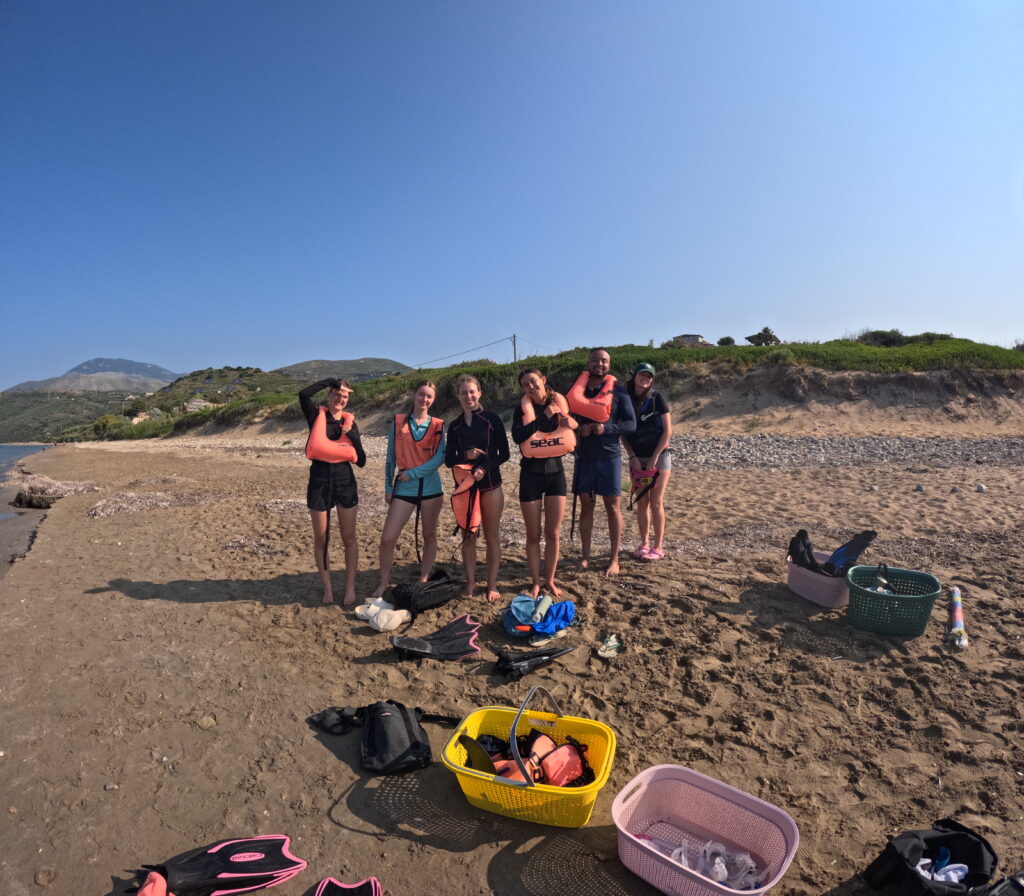
They were then treated to a special evening activity run by one of our 4-week volunteers, Izzy, where she put on an amazing Greek night. She created a fantastic presentation teaching us all different Greek phrases while we ate some delicious souvlakis. We are excited for what’s to come next !!!!!
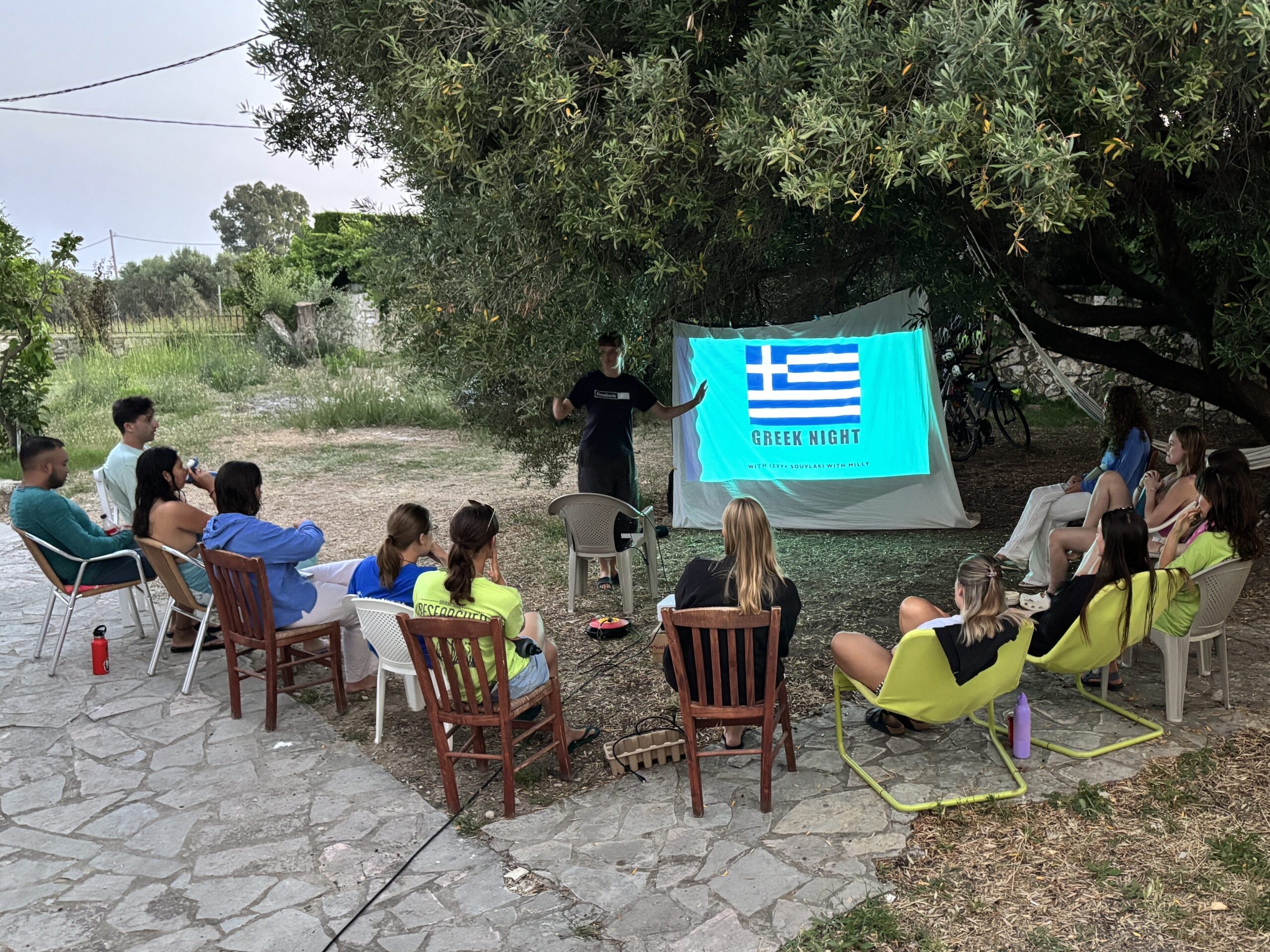

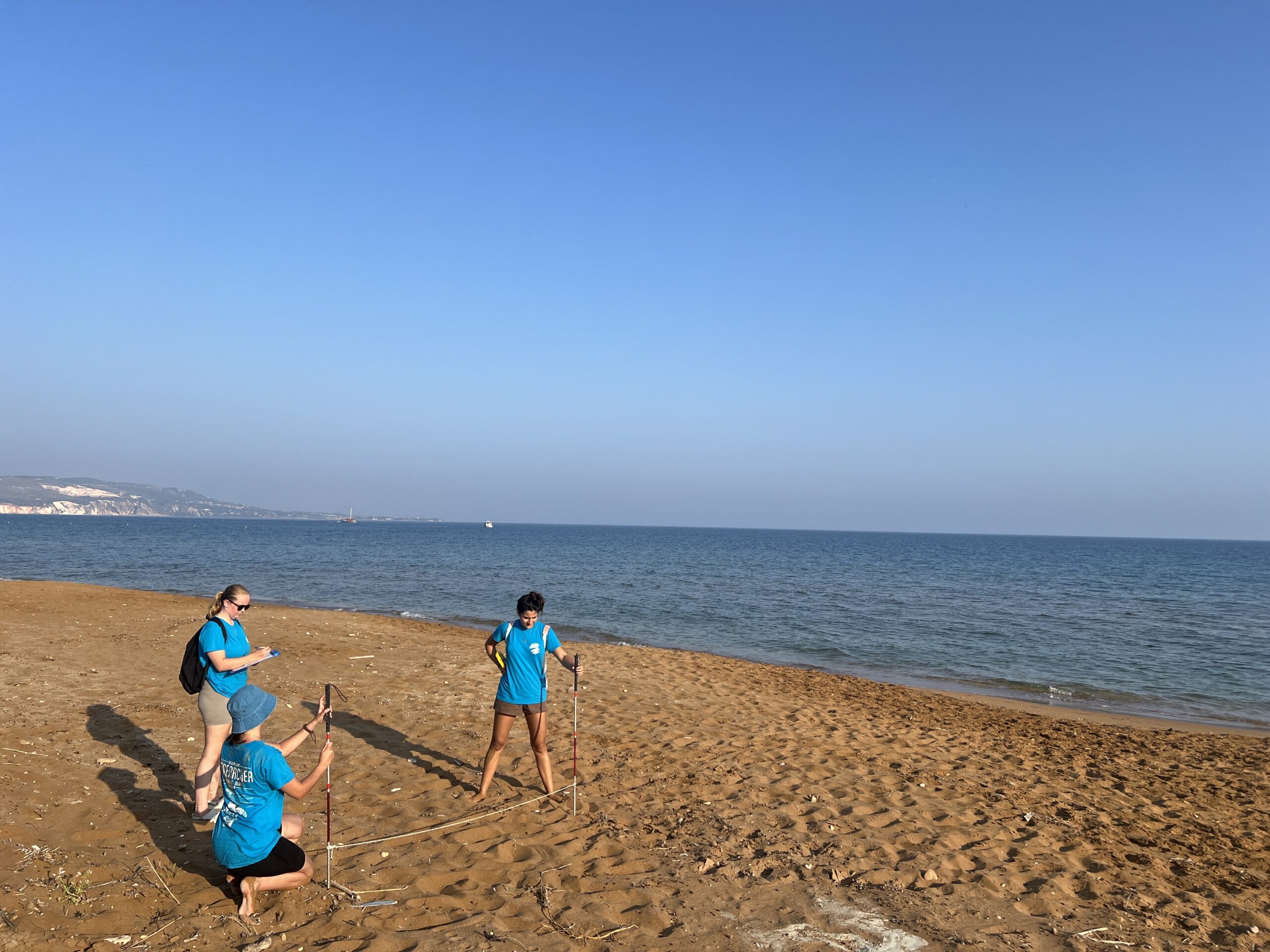

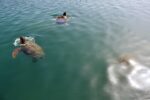
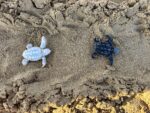
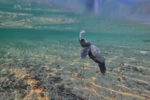
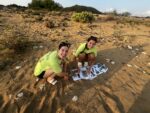
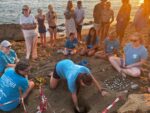
This is great effort from the wildlife team, we’ve just come home from an 11day stay in Katelios and noticed the increase in turtle nesting sites at Mounda and Karmina beaches . We hope they all make it come hatching time !!